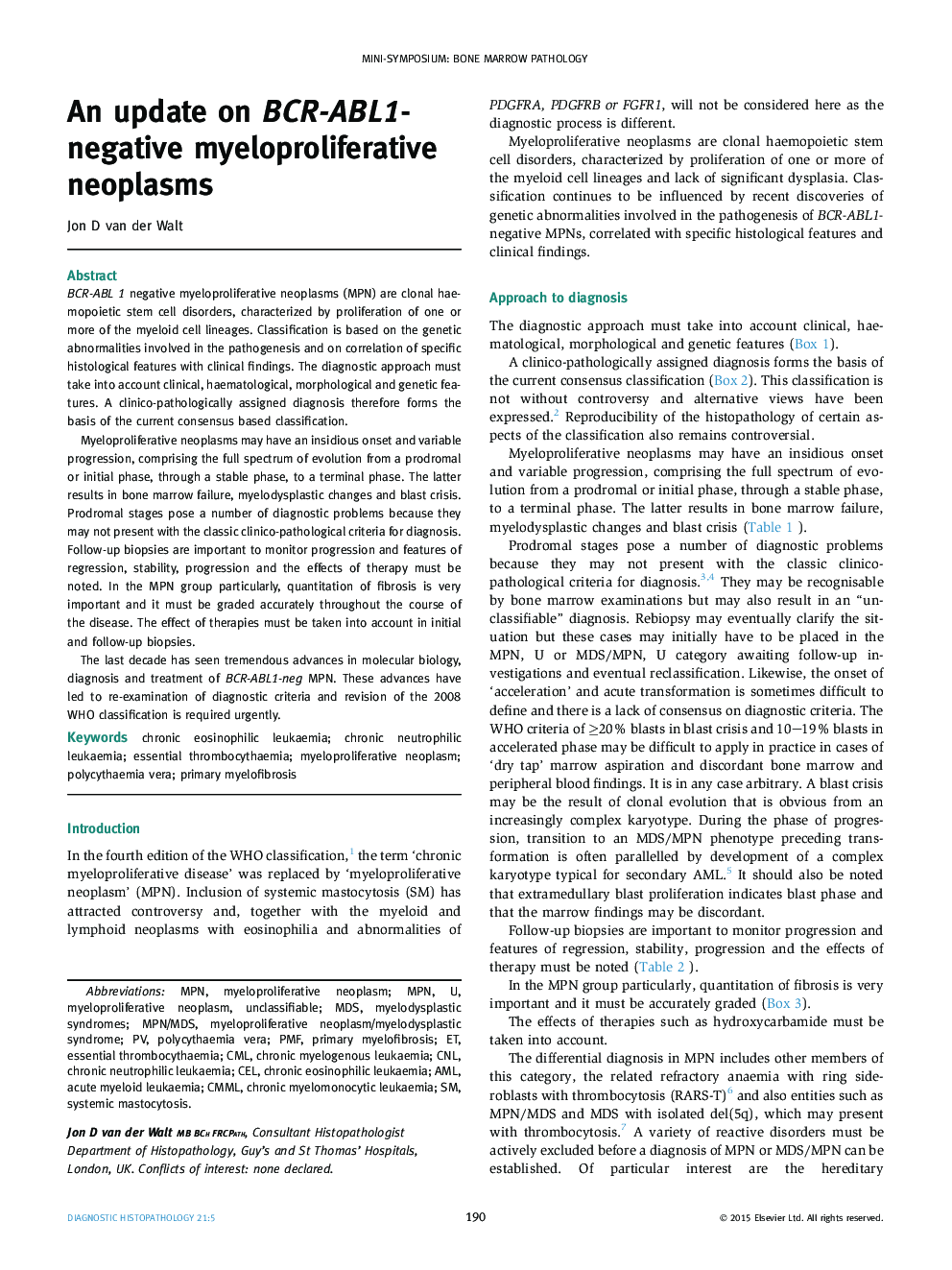| Article ID | Journal | Published Year | Pages | File Type |
|---|---|---|---|---|
| 4131056 | Diagnostic Histopathology | 2015 | 8 Pages |
BCR-ABL 1 negative myeloproliferative neoplasms (MPN) are clonal haemopoietic stem cell disorders, characterized by proliferation of one or more of the myeloid cell lineages. Classification is based on the genetic abnormalities involved in the pathogenesis and on correlation of specific histological features with clinical findings. The diagnostic approach must take into account clinical, haematological, morphological and genetic features. A clinico-pathologically assigned diagnosis therefore forms the basis of the current consensus based classification.Myeloproliferative neoplasms may have an insidious onset and variable progression, comprising the full spectrum of evolution from a prodromal or initial phase, through a stable phase, to a terminal phase. The latter results in bone marrow failure, myelodysplastic changes and blast crisis. Prodromal stages pose a number of diagnostic problems because they may not present with the classic clinico-pathological criteria for diagnosis. Follow-up biopsies are important to monitor progression and features of regression, stability, progression and the effects of therapy must be noted. In the MPN group particularly, quantitation of fibrosis is very important and it must be graded accurately throughout the course of the disease. The effect of therapies must be taken into account in initial and follow-up biopsies.The last decade has seen tremendous advances in molecular biology, diagnosis and treatment of BCR-ABL1-neg MPN. These advances have led to re-examination of diagnostic criteria and revision of the 2008 WHO classification is required urgently.
